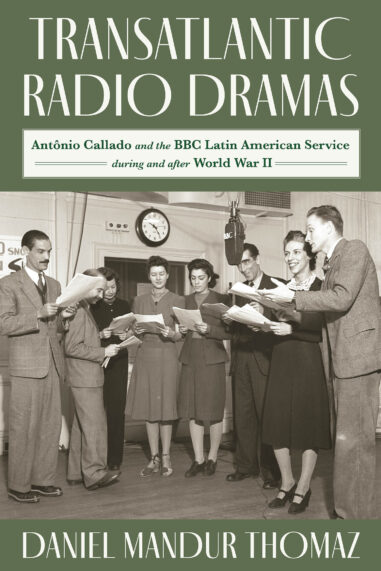The BBC Latin American Service was created in 1938, funded by the British Ministry of Information, to counter fascist propaganda broadcast to Latin America. Now considered one of the major Latin American novelists of the twentieth century, Brazilian writer Antônio Callado (1917–1997) got his start writing radio drama scripts for the BBC LAS during and after World War II. Largely forgotten until Daniel Mandur Thomaz collected them in a 2018 volume published in Brazil, these radio scripts were propaganda in their own right and were part of a concerted effort to win sympathy for Britain and the Allies in Latin America. They reveal how Callado’s experiences during the war influenced his writing and had a critical impact on themes he would revisit consistently throughout his literary career. Transatlantic Radio Dramas analyzesthe scripts themselves, but also examines the institutions, material practices, and beliefs that allowed modernist transatlantic networks like the BBC LAS to flourish.


